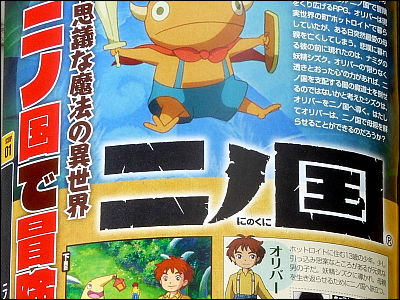What is the secret that gives the NPC of the game a personality and inspires soul?

When the main character talks to the villagers in role-playing games etc., it is a common pattern to be greeted with a fixed line such as `` Welcome to the village of ○○ '', and
How to Put More “Character” Into Your NPCs-The Pause Button
https://pausebutton.substack.com/p/how-to-put-more-character-into-your
Villagers are the NPCs of games. Mr. Golden cites the following lines as the villagers' usual lines.
Do you think the dragon will appear again?
It seems that Fire Mountain has a mirror that prevents the fire of dragons.
Mr. Golden calls the skeleton talk, which is a villager's indeterminate cliché used in countless games, old and new. From a gameplay point of view, skeleton talk is an efficient line of conversation that can explain what is happening in the game or guide you into what to do next.
However, Mr. Golden claimed, 'As a game player, as a narrative designer, I'm not satisfied with skeleton talk.' Villagers who speak similar lines will quickly disappear from the player's memory, unless they are in a very special situation like ' I am the Mayor '. The villagers, who exist only for skeleton talk, 'may detract from the player's immersiveness in a game that emphasizes stories,' Golden points out.
From the perspective of game design, Mr. Golden seems to be considering NPC lines with '4 questions in personification' in mind. From the 'Four Questions in Anthropomorphism' below, 'You can spawn NPCs as a single character like putting meat and internal organs on the skeleton,' says Golden.

◆ 1: Who is the NPC?
Mr. Golden gives the NPC a personality such as 'dashing', 'humble', or 'grumpy', and then begins the work of inspiring soul. In addition, Mr. Golden said that the character with fewer turns has less individuality, and the more important NPC is, the more individuality is added. Sometimes he considers not only individuality but also the character's entire career.
As an example of giving personality to NPC, Mr. Golden cites a pattern of first observing appearance characteristics and then thinking of personality. 'If you think the dragon will show up again? There's a mirror in Fire Mountain that blocks the fire of the dragon,' said a villager who dressed in dirty clothes and personalized his brave personality with a large hemp bag. , Mr. Golden gives an example when changing to the following lines.
Damn dragon, I don't want to see my face again.
Fire Mountain seems to have a mirror to prevent the fire of the dragon.
If my work wasn't busy, I would have taken it!
If you think that NPC is a slave and scared character from the same appearance of wearing dirty clothes and a big hemp bag, Mr. Golden suggests the following lines. The information received by the players is not changed, and the lines are given individuality.
I also spilled the grain from the bag. Killed by the employer!
It's distracting when you think about the dragon coming back.
Fire Mountain seems to have a flame-preventing mirror, but I dismissed all of my employer's mirrors.
I broke it all.

◆ 2: What kind of relationship does NPC have with the protagonist?
Most people speak differently to their partners, bosses, pets, and strangers. By clarifying the relationship that the hero is to the NPC, it is possible to create a character in the dialogue. For example, if the villager was the mother of the protagonist, Mr. Golden wrote a line that made him worry about the protagonist.
I don't think the dragon will come back ... right?
Fire Mountain has a mirror to prevent the fire, but don't go.
Too dangerous for my precious angel!
So what happens to the villagers when the protagonist is a stranger? Golden says that the dialogue changes depending on 'how the villagers think of strangers'. Are you happy to meet a dragon victim and someone to reach out? Do you want to reveal your feelings? Isn't the village suffering so much that it makes you suspicious of others? If you are a skeptical villager, Mr. Golden rewrites the lines as follows.
Who are you, Dragon Spy?
Prove you are our ally.
Prepare weapons to fight the dragon.
Fire Mountain has a mirror that blocks the fire.

◆ 3: What do NPCs want?
'Thinking about what the NPC wants' is the advice Mr. Golden received from the scriptwriter
There should be a desire not only for the main character but also for the supporting character. By understanding the NPC's desires, expressing them clearly and inviting sympathy, players will be more willing to help the villagers. For example, Mr. Golden wrote the lines of a villager who had the desire to 'I want the dragon to be gone because I have never slept after being attacked by a dragon.'
I'm so tired. I haven't slept since the dragon attack.
The village was very peaceful, but now I can only hear horror screams.
Perhaps Fire Mountain has a mirror that prevents the fire of dragons.
Hero, please defeat the dragon. I'm already tired ...
Even if the same 'desired dragon is gone' desire, if the villager is angry and angry with 'Dragon hates', Mr. Golden rewrites the line as follows.
Finally a true hero appeared in the village.
I prepared a quest for you.
The village is plagued by dragons, and Fire Mountain seems to have a mirror that blocks the fire of the dragon.
I would love to see him beat up.
By revealing the NPC's aspirations, players can feel more strongly why they should take on this quest. Instead of 'taking the quest to get the item', 'so that the villagers can sleep in peace', 'to satisfy the bloodthirsty villagers', 'what are you playing for?' Clarity also deepens the player's immersion in the game.

◆ 4: What do NPCs feel?
What the NPC feels the moment you talk to it is also an important factor. For example, Mr. Golden wrote the lines when the main character talks to the villagers when the dragon is approaching the village.
What are you doing? Run away if you miss your life!
The dragon will come to kill us!
Finding a legendary mirror to prevent flames at Fire Mountain may be our last hope!
People at risk do not always panic or frighten. Even in a crisis situation, some villagers may be settled down by their faith. For example, the lines of a villager who believes in the protection of the goddess written by Mr. Golden are as follows.
The dragon can't hurt me.
The goddess must have sent you to this village to defeat the dragon.
There is a mirror in Fire Mountain. It protects you from the fire of the dragon.
The goddess always protects me.
Even in a village of NPCs full of fear and panic, NPCs that express different emotions from the surroundings are conspicuous and easily remembered by the player.

In addition, Mr. Golden does not always ask 'four questions in anthropomorphism' when considering the dialogue of NPC, but also says 'sometimes one or two questions may be sufficient'. It's not that I'm cutting out just because there aren't many questions, but that I'm taking the time to think about NPC characters. “I'm always trying to give my NPC justice by taking the time to understand who the NPC is. Designers think of the NPC's face, clothes, walking, etc. In the same way, I am thinking about what NPCs think and feel. '
Another point is that all the examples written by Mr. Golden are within 3-4 lines. 'You don't have to write a lot of dialogue to give an NPC a personality. The person who writes the dialogue should write it in accordance with' The four questions in anthropomorphism. ' , It's not just about NPCs, it's about bringing life to the game world, 'commented Golden.
Related Posts:
in Game, Posted by darkhorse_log







